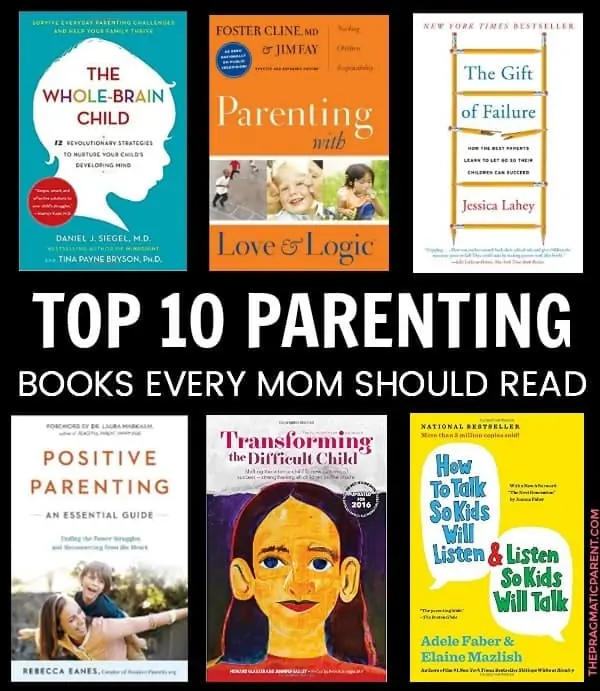The busyness of childhood & the harmful effects on children and families without downtime or boredom, creating restlessness & unhappiness.
Give Your Child the Gift of Time: The Inherent Need for Unstructured Play
In today’s fast-paced world, our children’s busyness has become a societal norm that many accept without question. I know I can look back at the past few years and see this progression in my own family’s schedule.
Last year, my youngest daughter told us she wanted to quit soccer. It was a competitive team she had tried out for and made.
“I just want to play with my friends afterschool, Mom” was her reasoning.
I admit, we were a little hesitant to contact the soccer organization and ask for her to be removed from the team, but one year later, she’s had zero regrets and loves playing outside after school instead of hurrying to do her homework and then hustle to soccer practice.
She knew she just wanted to be a kid and thankfully, communicated to us that her busy schedule wasn’t making her very happy.
During that transition period, my husband and I looked at each other multiple times and would ask, “well, what will she do now?” Like, we needed to fill the time somehow. Instead, following her lead, she’s creatively filled it herself with time with friends, making art, going on family walks, tending to her chickens and soaking in the sunshine and nature.
Our societal programming and expectations push us to fill every moment of our children’s lives with structured activities, from organized sports to extra lessons, and playdates, believing this will pave their way to success and socialized human beings.
This trend towards over-scheduling has raised alarms among child development specialists and parents who understand the critical role of free time in a child’s growth. Especially older generations who didn’t have an abundance of technology, drive for sports perfection at such a young age and thrived with unstructured time, particularly in nature.
They recognize that an overbooked schedule can lead to stress, stifle creativity, and rob children of the pure joy and discovery found in unstructured play and family time – a problem that’s now more evident since this is the culture most of our society supports.
Encouraging more free play is not merely a nostalgic return to simpler times; it is an essential component of raising healthy, happy, and resilient children.
Key Takeaways:
- Children’s busyness: Over-scheduling is prevalent, with organized activities dominating the landscape of childhood today.
- Importance of play: Unstructured play offers critical benefits for mental, emotional, and physical development. (Sorry, screentime does not count as unstructured play.)
- Family time: Simplifying schedules can lead to enhanced family bonding and healthier, happier children.
Signs Your Child May Be Over-Scheduled
A change in your child’s usual demeanor may signal an overly demanding routine which needs some trimming. They may exhibit irritability more often or show a lack of enthusiasm for things they once enjoyed or were excited to do. Their excitement for planned activities, even those they used to find joy in, might be diminished.
Social withdrawal is another red flag. If your child starts to avoid interactions with peers or shuns opportunities to play, consider it a potential symptom of stress stemming from keeping a full calendar.
Additionally, physical signs such as fatigue or complaints of being always tired earlier in the day than normal, shouldn’t be overlooked. These symptoms can be the body’s reaction to the constant hustle, underscoring the importance of simplifying schedules to enhance overall physical, mental and emotional well-being.
The Lost Art of Free Play
Let’s face it, busyness of family life and childhood in this day and age has overshadowed the simplicity of kids just being kids.
Do you remember when you were a kid riding around on your bike with a pack of neighborhood kids, creating games and drawing up adventures, drinking out of hoses and starting a pick-up game of basketball or soccer in someone’s yard?
The shift towards natural parenting aims to counteract this trend by emphasizing the importance of unstructured play over organized activities.
This practice has seen a significant decline, swept aside by the societal push for schedules replete with art classes, soccer practice, and an array of extracurriculars, all well-intended to shape future success.
However, simplifying childhood, or rather, reclaiming the magic of self-directed play, holds immeasurable benefits for childhood well-being. It fosters creativity in children, allowing them the free time to explore, imagine, and solve problems in their unique way. Moreover, it cultivates vital social skills as children learn to navigate interactions without the fixed boundaries of adult-directed play.
I love to send my kids outside to collect their friends and listen to the games they come up with, from the rules they agree on to the way they all come together for one imaginary game they just put their heads together and created. Kids are the real creative geniuses!
The essence of allowing kids the freedom to direct their play lies not only in reducing schedules but in acknowledging the transformative power of boredom and the limitless potential it unlocks.
How Creativity Suffers
In the world of natural parenting and simplifying childhood, we’ve observed a troubling trend. Children’s busyness, packed with organized activities, has been hailed as a pathway to future success. Yet, this frenzy of scheduling overlooks the critical importance of play and the magic it holds for childhood well-being.
As schedules swell, free time shrinks, casting a shadow over children’s inherent creativity.
Let’s face it, alarm bells have been sounding for years. We’ve all heard these conversations time and time again. Studies pinpoint a stark decline in creative thinking and problem-solving in young adults, a direct fallout from their over-managed childhood.
It isn’t merely the presence of structured activities that dims the lantern of imagination but the absence of something equally vital: downtime.
This sacred space, once fertile ground for self-directed play and exploration, is now a rarity.
How many times have you tried to get together with friends or plan a playdate but first, you have to find a date on your calendar when you’re both free? It’s usually harder than it sounds, amiright?
When children are denied the luxury of boredom, their mental and physical well-being suffers, robbing them of the chance to engage in natural parenting, to invent, explore, and simply be kids.
The Power of Boredom
Children today often miss out on the luxury of boredom.
In an era defined by children’s busyness and societal expectations, the notion of doing ‘nothing’ seems quaint. Yet, this very state is where magic brews.
Boredom is a blank canvas, urging the young mind to paint with strokes of creativity and curiosity. It propels children into the realms of unstructured play, where they become architects of their imagination. They learn to navigate their inner landscapes, discovering passions and intricacies of their personality that structured activities rarely unearth.
Among the clutter of organized activities and parental fear, the simplicity and importance of play get lost.
Boredom offers a reprieve, a moment to breathe and just be.
This underrated ally fosters mental well-being, hones problem-solving skills, and nurtures an external locus of control that empowers children. By embracing these serene spells, we gift our children the freedom to explore, invent, and dream, setting the stage for a childhood brimming with creativity and joy.
The Fear Driving Us
I have seen it firsthand, the anxiety that grips you as a parent at the thought of your children lagging in the race to the top.
I see it and have felt it, particularly in sports.
My son plays hockey and baseball, and his twin sister is involved in basketball and soccer. While we play on organized teams with paid coaches, just making practices doesn’t cut it these days. Many parents on their teams schedule additional private instruction, plan for additional ice time, purchase the top-of-the-line and most expensive gear and Sundays are for getting in extra practice time. All of this is in hopes it pushes their child upward to be the best and not at the bottom of the athleticism pool.
This dread fuels our society’s obsession with ensuring no child sits idle, even for a moment. Yet, it has led us astray, into a world where children’s busyness trumps their mental and physical well-being.
Everywhere, voices warn us of future failures should our offspring not excel from the earliest ages in both academics and extracurriculars.
But, what we forget is the stress and pressure this puts on kids mentally and emotionally, as well as the sacrifice they make by not having downtime or free play to socialize (in person) with friends or let their imaginations take the reins.
The chase for success, as dictated by societal expectations, often blinds us to the essence of a fulfilling life. It presses us to cram schedules with organized activities, leaving little room for the magic of childhood, creativity, and the development of an internal locus of control.
Reflecting on my journey, I recognize the importance of re-evaluating our fears. Let us ponder the true markers of success – happiness, resilience, and a well-rounded character. It’s time we give our children the gift of time, for their ultimate well-being and ours.
Benefits of Simplifying Schedules
Lightening schedules has profound impacts on children’s well-being.
Mentally, it alleviates the pressure, allowing their creativity and problem-solving skills to flourish. This simplification fosters an environment where they can navigate challenges with more agility.
Physically, reduced busyness means children have more energy for spontaneous play. This play is crucial for their development. It enhances gross motor skills, improves physical health, and instills a love for active living.
Emotionally, children benefit from a strengthened sense of self. They develop resilience and an external locus of control.
- Family bonding: Simplified schedules carve out invaluable time for family. These moments become opportunities for connection and memory-making.
- Independence: Children grasp the reins of their free time. They learn to entertain themselves, making choices that align with their genuine interests.
- Stress reduction: With less on their plates, children experience a notable decrease in stress. This lays the groundwork for a more joyful, enchanted childhood.
Listening to Your Child
I have learned the significance of heeding my child’s interests and needs. Watching their eyes light up over something as simple as free play unveiled a vital truth – our young ones show us what they need.
Such moments remind me the essence of simplifying childhood lies in their genuine laughter, not the schedules we construct. Often, they yearned for nothing more than the freedom to explore on their terms.
Children possess an inherent wisdom about their well-being that, too frequently, gets overshadowed by our fear of missing out or societal expectations. I have initiated conversations, curious about what activities they find joy in.
To my surprise, the answers were never about more structured play or additional classes. They spoke of unstructured play times, where creativity in children and self-directed play flourished without constraints.
This insight compels us to rethink. It encourages a shift towards valuing free time, where childhood magic is preserved, and mental and physical well-being are nurtured through the simple act of play.
Implementing Change
We often find ourselves tangled in the web of societal expectations, believing busyness equates to success. It’s easy to succumb to the pressures of enrolling our children in numerous activities.
But first, it’s crucial we step back and reassess.
Begin by scrutinizing your child’s current roster of commitments.
- Ask yourself: Which of these foster genuine joy and learning?
- Then, dare to prioritize.
- Acknowledge that not all organized activities contribute equally to your child’s well-being or creativity.
Next, let’s champion simplicity. Embrace the courage to say no to certain engagements, even when faced with the fear of missing out. This act itself can be liberating, paving the way for more family time and self-directed play.
Envision a schedule with breathing space, allowing for moments of free play and the nurturing of natural parenting ideals.
Remember, offering your child the luxury of unstructured play isn’t a step back but a bold stride towards fostering their mental and physical health, creativity, and ultimate happiness.
Navigating Social Pressures
Societal expectations often shape our actions. We feel a heavy weight to conform to the norms presented to us. Others might view a less packed schedule as a lack of ambition or opportunity for our children.
This perception can be daunting and when we as adults, feel like we’re on the outside, it can stir up our own emotions, fears and triggers.
Natural parenting principles encourage us to trust our instincts. They tell us that simplifying childhood is not only okay but beneficial. By focusing on the importance of play, we champion our children’s mental and physical well-being. This approach might clash with the mainstream, but the benefits are undeniable.
Discussing these choices with other parents can be enlightening. Many share concerns about children’s busyness and the loss of childhood magic. Conversations can lead to a broader understanding and even shifts in community norms. Schools can play a role, too, by supporting a balance between organized activities and free time.
Remember, the courage to prioritize our child’s well-being over societal expectations sets a powerful example. It teaches them to value their happiness and mental well-being above all.
Rediscovering Family Time
In our fast-paced world, finding quality moments together can sometimes evade us. We’ve noticed that societal expectations often push us to schedule every part of our lives, including the valuable childhood years.
Gentle parenting has shown us, however, that simplifying childhood by reducing schedules can lead to tremendous benefits. This realization has brought the importance of play and, specifically, freely chosen unstructured play, back into focus.
Unstructured play is not just a time for relaxation but a foundation for creativity in children, fortifying their mental and physical well-being.
Implementing change requires courage.
We should dare to resist the fear of missing out and venture into the realm of self-directed play. Consider initiating weekend hikes where the rules are minimal, and the imagination runs wild. Or perhaps, setting aside evenings for board games that invite laughter and foster a sense of togetherness. These activities not only reduce childhood stress but also enhance family time.
By prioritizing these moments, we attest to the magic of childhood, an exhilarating period filled with wonder and discovery, safeguarded from the clutches of an external locus of control.
The Role of Schools
Schools have been on the frontlines, shaping the daily routines of our children. They wield immense influence over how our children’s time is structured. Yet, this power comes with responsibility. Schools must advocate for balanced schedules that honor the essential role of unstructured play and free time.
The importance of play in learning cannot be overstated. It fosters creativity in children, boosts mental well-being, and nurtures physical wellness. Sadly, the fear of missing out drives us towards overscheduling, leaving little room for the magic of childhood spontaneity.
This is where schools can truly shine, if their intentions really are to nourish young minds and support emotional/mental wellbeing.
By implementing educational policies that provide ample downtime, minimal work after school hours, and offer plenty of creative outlets including movement inside school hours, schools can help preserve childhood’s magic.
This involves minimizing the external locus of control that scheduled activities impose, thereby promoting self-directed play and reducing childhood stress. Let us remember, the societal expectations placed upon us should never dictate the well-being of our children. It is high time schools led by example, showing confidence in less structured schedules that prioritize our children’s need for play, exploration, and simply being kids.
Hearing from the Experts
In the realm of child psychology and education, there exists a strong consensus on the unparalleled value of unstructured play for children’s development.
Experts across the board have shown that free time, devoid of pre-planned activities, cultivates creativity in children, enhances their mental and physical well-being, and strengthens their capacity for self-directed play.
A pivotal study highlighted by David Elkind, in The Power of Play, Learning What Comes Naturally, revealed that children not fettered by crowded schedules exhibited above-average levels of creativity.
Dr. Susan Linn, a respected advocate for simplifying childhood, emphasized the threat that an external locus of control poses to childhood stress and well-being. “Children’s busyness is not a badge of honour,” she remarked, pointing towards the societal expectations that often override the magic of childhood.
She argues fervently for the necessity of incorporating substantial amounts of free time into children’s daily routines, allowing them the independence to explore the realms of their imagination and interests without the constraints of adult-imposed schedules.
Furthermore, child psychologists underline the critical role that boredom plays in fostering an environment where children can tap into their inner worlds, thereby boosting their creativity and reducing childhood stress. (As parents we also have to be mindful of avoiding screens and digital activities to combat boredom.)
They caution against the fear of missing out and parental fear driving the relentless pursuit of organized activities. Instead, they advocate for a balanced approach, one that includes ample family time and encourages natural parenting techniques to support children’s well-being and foster an environment ripe for the blossoming of creativity and joy.
Embrace the Magic of Childhood Because it Really CAN be Magical
In our journey through parenting, we often tread a path influenced heavily by societal expectations.
Somewhere along this journey, the societal glorification of busyness has misguided us. I’ve observed a worrisome trend where children’s busyness, as if a badge of honour, paints a façade of a fulfilling childhood. I fell into this trap too and have been actively working at undoing some of the behaviors and overscheduling habits that got us into this dilemma in the first place.
Yet, beneath this lies an uncomfortable truth – our children are missing out on the magic of childhood.
The pressure to ensure our children’s future success has led many of us to overschedule their lives, from academic achievements to organized activities.
This relentless pursuit, often driven by a fear of missing out, overlooks the critical role of simplicity in childhood.
A simplifying childhood, one where natural parenting flourishes, fosters creativity in children, reduces childhood stress, and strengthens their mental and physical well-being. It empowers them with an external locus of control, providing a foundation for self-directed play and discovery.
I encourage all parents to reassess the tempo of your child’s life and your family’s dynamics.
- Are they what you want?
- Do they make everyone happy?
- How does everyone feel about your current schedule?
- What would they change, if they were able to do?
- What, if anything, is missing?
Reflect on the importance of play and the myriad ways in which reducing schedules can enrich family time. Let us reject the narrative that equates busyness with progress. Instead, let’s embrace the concept of giving our children the gift of time. Time to explore, to imagine, and to grow.
This deliberate choice to simplify not only preserves the enchantment of childhood but also cultivates a well-rounded, resilient, and happy individual. Remember, a childhood suffused with love, laughter, and leisure is a legacy worth leaving.
Related Articles to Child Development & Childhood
- How To Break Your Child’s Screen Addiction
- How To Help Kids With Bottled-Up Emotions
- 10 Ways To Keep Your Family Connection Strong
- Family Fun Night: 20 Minute to Win it Games for Kids & Adults
- Deciphering Kids’ Worries: What’s Normal Vs. Red Flags
- 10 Simple Ways to Limit Screen Time & Raise Unplugged Kids
- 6 Health Benefits of Outdoor Play & 20 Fun Outside Ideas for Kids (No Screens Allowed)
Want even more?
Shop All Parenting Resources
Shop all of our parenting resources from self-regulation tools and managing big emotions to building self esteem and confidence. There are resources for all seasons of life!










